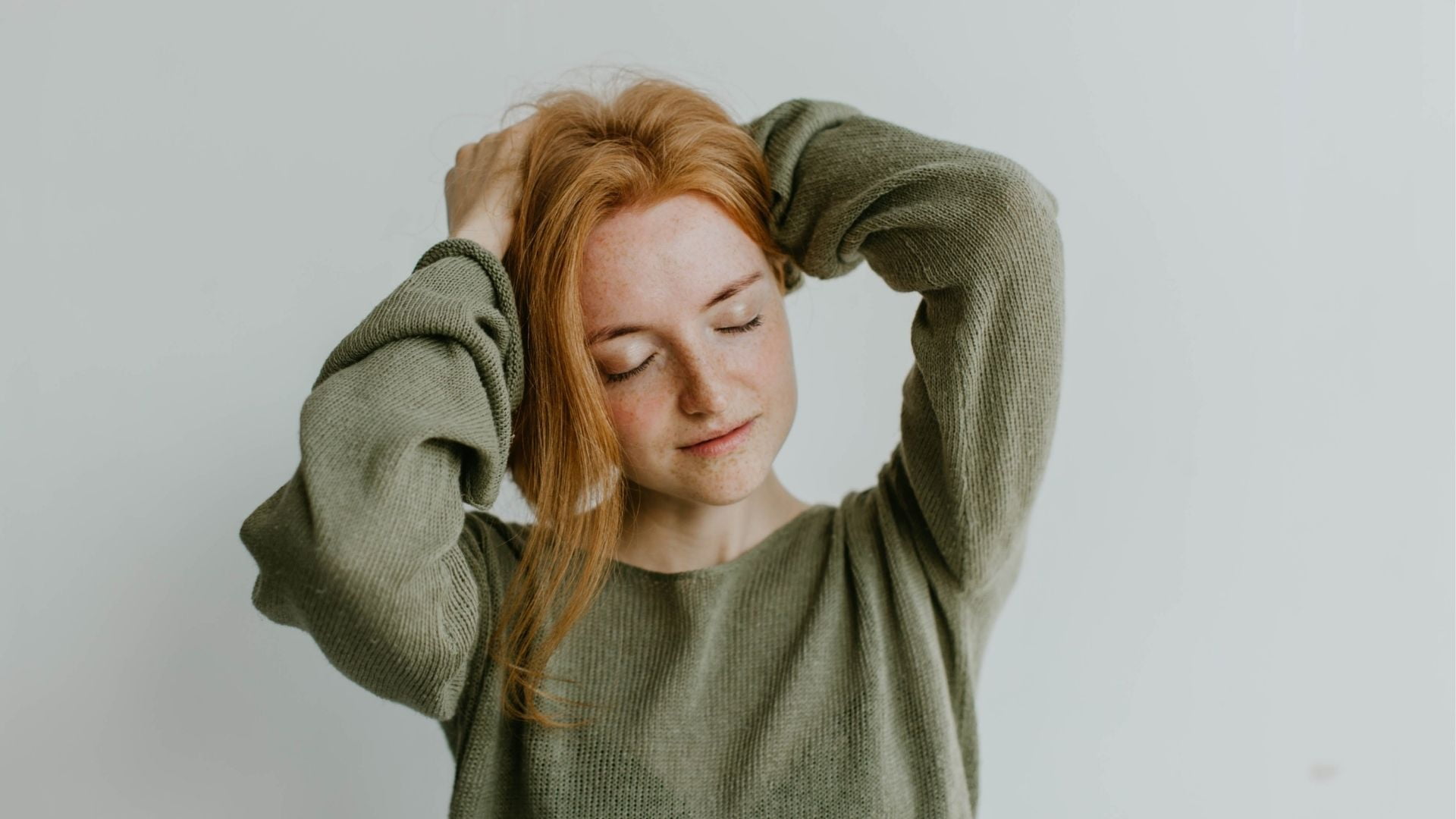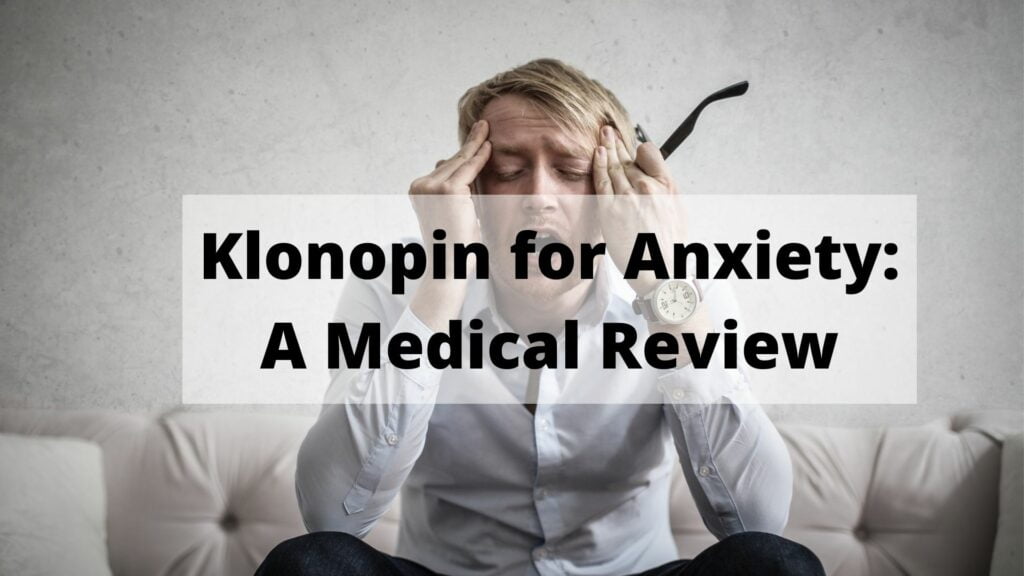Klonopin can be used to treat a variety of diseases, however, this article will focus on Klonopin for anxiety. Anxiety is a psychological disorder marked by excessive worry and fear of specific items or occurrences. Social phobia (fear of social interactions) and generalized anxiety disorder are examples of this (extreme worry often without an object). One medicine that shows to effectively alleviate anxiety symptoms in adults is Klonopin.
Contents
What Is Klonopin
Klonopin is a medicine that helps with anxiety. It has the same active ingredient as clonazepam, which is a medicine for seizures. Klonopin is also in use to treat panic attacks and seizures.
If your doctor has given you a prescription for Klonopin, you are probably wondering what it is and how it works. You need to know how this medication functions as well as where you can use it.
When you take a medicine, it can have side effects. You will want to know what those side effects are and how they could affect your health.
Klonopin And Anxiety
Anxiety is the most frequent mental health problem in the United States, affecting 18.1 percent of the population every year, or 40 million people. Medications like clonazepam are effective in treating anxiety. Only 36.9 percent of those who suffer from it will seek help. Anxiety disorders are caused by a variety of reasons, including personality, brain chemistry, stress levels, or genes.
If you are suffering from anxiety then Klonopin may be able to help you find relief from your symptoms. However, Klonopin is a strong medication that can have side effects if misused. If Klonopin doesn’t work for you don’t give up there are other medications that may be able to help.
Klonopin is a benzodiazepine, which means it works by increasing the activity of gamma-aminobutyric acid (GABA) receptors in your brain. GABA is an inhibitory neurotransmitter and Klonopin mimics its effects on those receptors. This can slow down the central nervous system and reduce your anxiety.
Klonopin is used to treat seizures, panic disorders, sleep problems caused by anxiety or tension, as well as acute alcohol withdrawal. Klonopin can even help reduce hot flashes in menopausal women. This medication may also be prescribed for other uses.
Side Effects of Klonopin

The side effects associated with Klonopin are usually dose-dependent. This means the more a person takes, the more likely they are to experience side effects. Mild side effects will usually fade away after a few days or weeks.
Common Side Effects
The most frequent adverse effects associated with Klonopin intake include:
- Somnolence
- Dizziness
- The trouble with coordination and walking
- Depression
- Cognitive impairment
Other side effects of Klonopin include:
- Changes in sex drive or sexual performance
- Frequent urination
- Blurred vision
- Increased production of saliva
- Pain in your muscles or joints
- Unsteadiness
- Sinus or respiratory problems
Following your doctor’s instructions, take the medication as directed. He or she will follow up with you after you begin taking Klonopin and ask you questions about how you’ve been feeling throughout the treatment. This discussion allows them to assess the drug’s efficacy in treating your symptoms while also allowing you to discuss any side effects you’re experiencing. Your doctor will advise you on whether or not to continue taking Klonopin.
Klonopin Drawbacks And Possible Side Effects
Some Klonopin side effects are severe—even deadly. If you take Klonopin together with alcohol, illegal drugs, or other medicines that cause drowsiness. Your chances of experiencing serious side effects will arise. Seek medical attention if a person on Klonopin exhibits the following symptoms:
- Extreme sleepiness, loss of consciousness, or unresponsiveness. This could be a symptom of someone overdosing on Klonopin or combining it with another medicine or substance that causes an adverse reaction.
- Breathing problems, rashes, hives, and swelling of the face, throat, and eyes are all symptoms. These symptoms could indicate an allergic reaction.
Klonopin can induce suicidal thoughts and ideations in some people. If you notice any unusual changes in your behavior or mood, such as:
- Problems sleeping or insomnia
- New or worsening anxiety or depression
- Thinking about dying
Benefits of Klonopin

This medication has many side effects that may or may not be serious for each person depending on their specific medical history. Some common Klonopin side effects include fatigue, dizziness, drowsiness, and clumsiness. Some side effects are not serious at all while others can be life-threatening if left untreated.
Klonopin is a benzodiazepine medication that was introduced in the 1960s to treat seizures among other things. It has been used by millions of Americans since then for many different medical conditions including anxiety, panic disorders, and other mental health issues.
Klonopin belongs to a class of drugs known as benzodiazepines which are central nervous system depressants that reduce the activity in your brain. It is in use for epileptic seizures or tremors but may also be in use by people who suffer from anxiety or panic attacks. Taking Klonopin for anxiety requires a doctor’s prescription.
Other Benefits
Klonopin is primarily in use to treat seizures and panic attacks. It can also be prescribed by doctors as an effective treatment option for sleep disorders such as insomnia. It provides relief from agitation related to severe schizophrenia and alcohol withdrawal symptoms. Klonopin may also cause physical dependence and withdrawal symptoms if the medication is stopped abruptly.
Klonopin has a few uses in medicine but most often people use Klonopin for anxiety or to help them sleep better at night. Since it is an effective sleep aid that can be in use as part of your normal bedtime routine. It should not be in use by pregnant women because Klonopin may lead to birth defects.
Klonopin is a benzodiazepine medication that works by depressing the central nervous system, which results in calming effects. It affects specific neurotransmitters in the brain responsible for anxiety and stress. The klonopin generic contains Clonazepam, an anticonvuls ant and muscle relaxant.
Dosage Guidelines

The first dose your doctor will prescribe you is either 0.5 mg or 1 mg, and it is split into smaller doses each day. Your doctor may change the dose depending on how you respond to treatment and might start you off with a lower dosage for a short time. If they are trying to help control the anxiety that happens when you are in a Klonopin withdrawal or if you are having an especially challenging time.
Follow up with your doctor to learn how you’ve been feeling since beginning clonazepam. You must respond honestly so they can see if the drug is effective in treating the symptoms. It will also allow you to inform them about any negative effects you’re experiencing. At this time, your doctor has the option of changing your dosage.
You should not use clonazepam if you:
- Have significant kidney or liver disease
- Are pregnant or breastfeeding
- Are under the age of 18
- Have a history of sensitivity to benzodiazepines, such as Xanax, Ativan, or Valium
- Been in diagnosis with acute narrow-angle glaucoma
- Have been diagnosis with hepatic porphyria
Clonazepam has been in link to an increase incidence of depression in some individuals. If your depression gets worse, contact your doctor right away. If you have suicidal thoughts, please call the Suicide Prevention Lifeline at 1-800-273-8255.
Associated Risks
Klonopin has the potential to be highly addictive. Individuals who use Klonopin in a manner that is not intended. It runs the danger of overdosing and even dying. This is
particularly when other substances are in consumption at the same time, such as opioids or alcohol.
When you take Klonopin, there is always the danger of physical and psychological dependence. When you use it for a longer amount of time than two weeks, the medicine has a higher chance of developing physical dependency.
Because withdrawal symptoms can occur after stopping Klonopin suddenly, such as seizures, which can be fatal, you should consult your doctor. If you want to decrease or terminate your dosage, contact your doctor. They may be able to help you taper off the medicine gradually over time, a technique known as tapering.
Even if you’re having side effects, don’t stop taking Klonopin suddenly without consulting your doctor.
Older people are more prone to medication adverse effects, particularly ones that happen with benzodiazepine use. Older individuals have also had an increased risk of falling and cognitive impairments.
When you first start taking Klonopin, avoid hazardous tasks until you’ve had time to adjust. Wait at least 24 hours before engaging in any activities that may be harmful to yourself or others:
- Drive
- Operate heavy machinery
- Participate in any potentially hazardous activities
Klonopin Dependence
Klonopin is a medicine for people who have problems because of anxiety. It’s possible to develop a psychological and physical dependence on this medicine.
It also implies that if you stop suddenly, you’ll have withdrawal symptoms. Before quitting, see your doctor. They will advise you to take less of the medicine over time, a practice known as tapering, until you can do so safely.
If someone uses clonazepam for a long time, it can be dangerous.
When you first start taking clonazepam, stay away from hazardous activities until you’ve gotten used to it. Avoiding heavy machinery, driving, or engaging in any other potentially attentive activities while unsure how you’ll feel while using the medicine is a good idea.
Conclusion
One final note, if you are considering taking Klonopin for anxiety there should be a physician involved in the decision. It is important to balance potential benefits with possible side effects and risks of this drug. If you take any medications that cause drowsiness it could make your condition worse because clonazepam can also have these same side effects. Research has shown that people who don’t respond well to other treatments like cognitive behavioral therapy may benefit from treatment with benzodiazepines like Clonazepam (Klonopin). However, it is always best to talk about what might work best for you before starting on any medication or supplement regimen- especially one as powerful as Clonazepam.
For more information, please contact MantraCare. Anxiety is a common mental health condition characterized by persistent feelings of worry, fear, and apprehension. If you have any queries regarding Online Anxiety Counseling experienced therapists at MantraCare can help: Book a trial Anxiety therapy session


